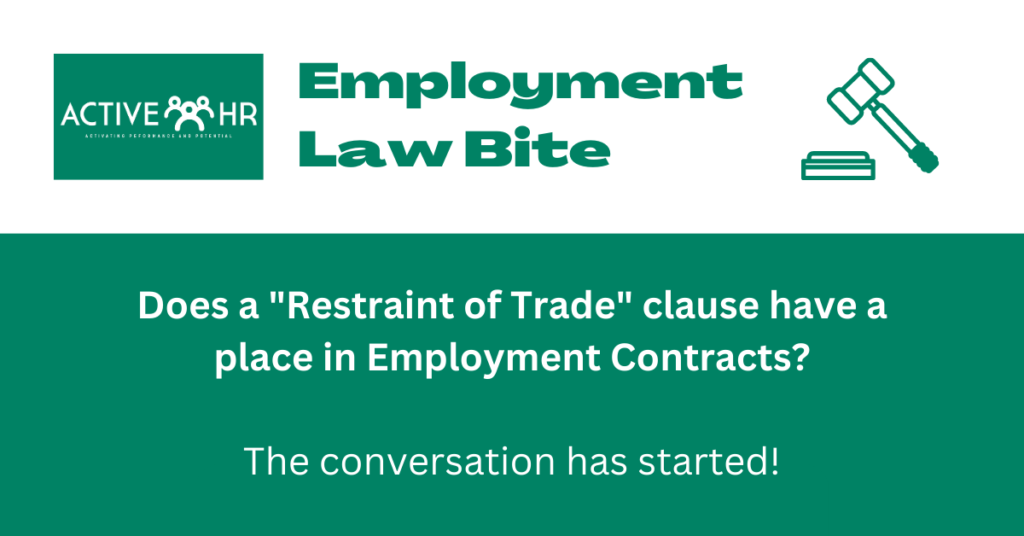Does a "Restraint of Trade" clause have a place in Employment Contracts?
A conversation has started within Australia around the long-term need for these clauses within Contracts of Employment and whether they offer the benefits sought or do they in fact just serve the purpose of preventing healthy competition across the workforce?
Imagine this…You’re a business owner who has invested a lot of time and energy in developing a couple of your team and as a result of that, you and your team have developed a product that has not yet come onto market. This is the product that gives your business a real competitive advantage.
You deserve an opportunity to protect that interest, right?
What about a similar scenario where you have developed up a Sales Executive for your company, a person who has over time successfully helped your business develop a solid client base. Then they resign and go to work for a competitor, and with them they took the details of your clients and sales team to provide to your competitor.
Both of these scenarios have actually played out in recent legal proceedings played out within Australia and Internationally.
The case for non-compete clauses
The case for these clauses is supported by employers who seek to address concerns about ex-employees undermining their competitive business positions post separation. This is what happened in the case of Kumaran v Employsure Pty Ltd [2022] NSWCA 201, the appellant successfully upheld the application of their restraint of trade clause. It is for that reason that post-separation clauses are seemingly being called on more often by employers then not.
The case against non-compete clause
Think about this scenario…..your a builder who works for a construction company and you do really great work to the point where the company’s owner will openly talk about the quality of your work and link it to a great customer experience. You have another company who offers you a higher wage to go work for them but if you do you risk being sued for the reason that your current employment contract has a restraint of trade clause.
This type of issue also arises quite often and our agency has received numerous calls for advice from employees, feeling compelling to stay in job they do not enjoy because of the restraint of trade clause. This doesn’t appear to be a win-win outcome for any employer as a dissatisfied employee isn’t a productive employee.
The generally accepted view on enforceability
In Australia the general position accepted by the courts is that restraint of trade (non-compete) clauses in contracts of employment, are generally considered unenforceable. That is unless an employer can demonstrate there is reasonable grounds for their necessitation so as to protect an employer’s legitimate interests. What this essentially says is that an employer does have some rights to IP or reputation but there are limitations in exercising those rights post-employment. What we tend to see is that these clauses are being upheld where there are legitimate business interests such as a reasonable risk of confidential information being shared and client relationships being detrimentally damaged.
However around the world the law is being more scripted and controlling in their use and some countries have outlawed them generally making them never enforceable. This is the conversation that has started here in Australia by the Federal Government who, as Active HR understands has called advice from the ACCC.
Active HR regularly reviews case law about all HR matters and we await with interest to see how this plays out however in the meantime if you have any questions about the suitability of restraint of trade, what is reasonable and what is perhaps an overstretch of restraint, feel free to contact us about any matters relating to contracts of employment.
We have developed a suite of industry aligned employment agreements that include restraint options surrounding:
- Restraint of Trade (Non Compete and/or Non Solicitation);
- Post-Employment Confidentiality Obligations
- Post Employment Intellectual Property Obligations etc
SOURCES:
- Australian Human Resources Institute March 2023.
- Kumaran v Employsure Pty Ltd[2022] NSWCA 201
- Racing News 365.com/red-bull-head-to-court-over-departing-fallows

